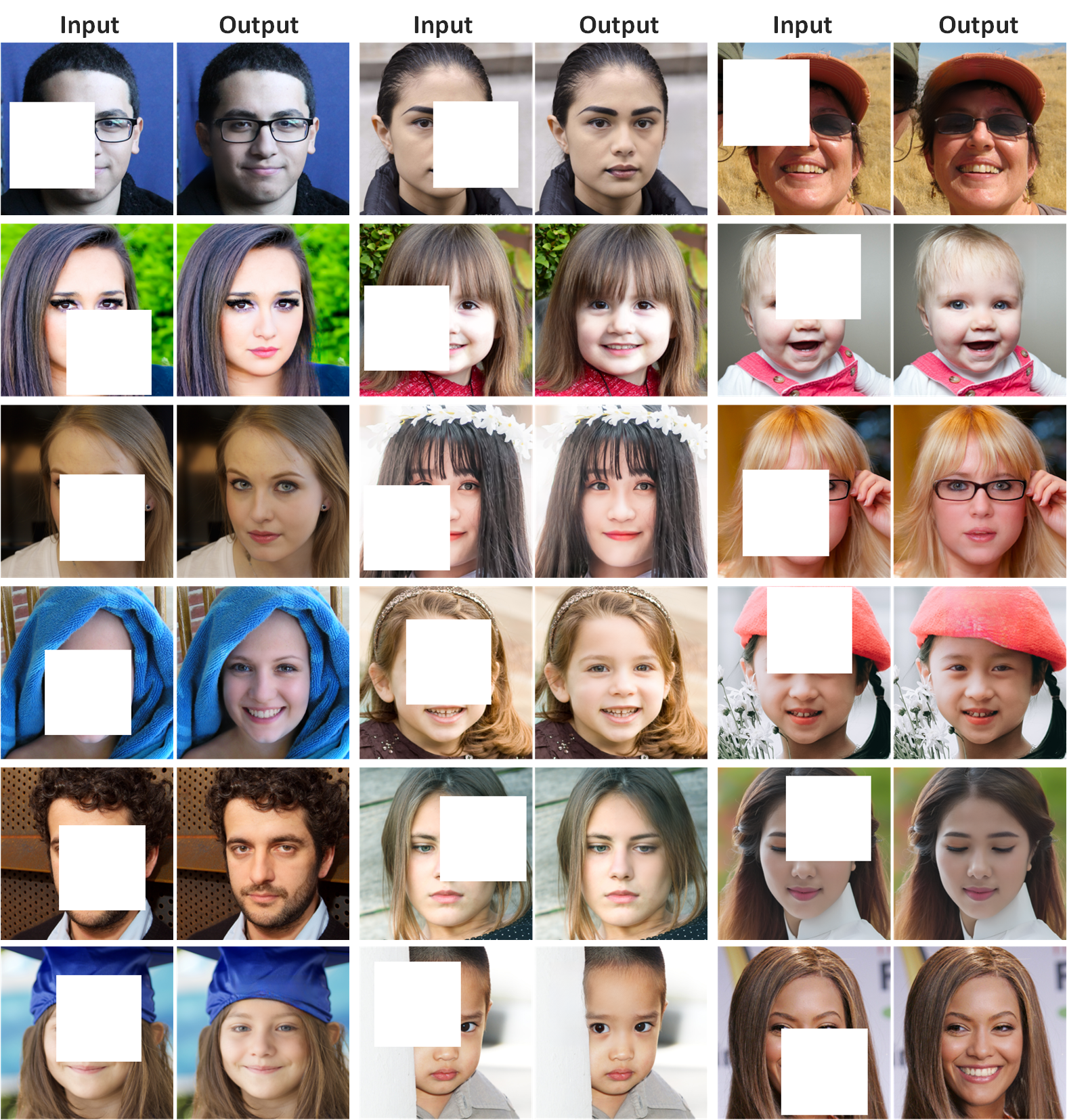Image Fine-grained Inpainting
Image inpainting techniques have shown promising improvement with the assistance of generative adversarial networks (GANs) recently. However, most of them often suffered from completed results with unreasonable structure or blurriness. To mitigate this problem, in this paper, we present a one-stage model that utilizes dense combinations of dilated convolutions to obtain larger and more effective receptive fields. Benefited from the property of this network, we can more easily recover large regions in an incomplete image. To better train this efficient generator, except for frequently-used VGG feature matching loss, we design a novel self-guided regression loss for concentrating on uncertain areas and enhancing the semantic details. Besides, we devise a geometrical alignment constraint item to compensate for the pixel-based distance between prediction features and ground-truth ones. We also employ a discriminator with local and global branches to ensure local-global contents consistency. To further improve the quality of generated images, discriminator feature matching on the local branch is introduced, which dynamically minimizes the similarity of intermediate features between synthetic and ground-truth patches. Extensive experiments on several public datasets demonstrate that our approach outperforms current state-of-the-art methods. Code is available at https://github.com/Zheng222/DMFN.
PDF Abstract





 FFHQ
FFHQ
 Places
Places
 CelebA-HQ
CelebA-HQ
